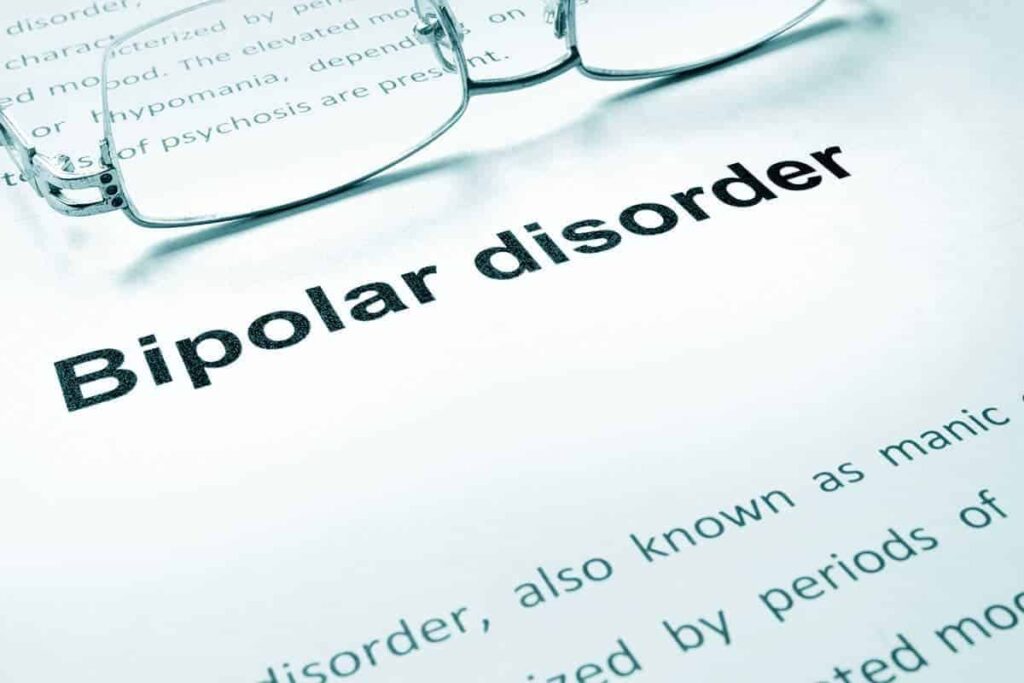Bipolar disorder is a mental health disorder characterized by intense mood swings which include emotional highs (manic state) and lows (depressive state). When an individual is in a manic state, they can feel euphoric, capable, and be extremely productive. When they fall into a depressive state, they can become lethargic, low energy, apathetic, and even suicidal. These drastic and sometimes sudden mood swings can have a serious impact on an individual’s sleep habits, their digestive system, their energy levels, their behavior, and their overall wellbeing. In most cases, those who suffer from this disorder can find relief through a combination of pharmaceuticals and psychological counseling.
There are several types of bipolar disorder and related illnesses, but the two most common are Bipolar I and Bipolar II disorder. Bipolar I disorder is characterized by one manic episode that is immediately followed by a hypomanic, or a depressive state. Hypomania is a less severe form of mania. Mania is a severe episode that can last for weeks at a time and causes noticeable differences in an individual’s behavior. Mania can affect a user’s daily life and cause them to break from reality and even trigger an episode of psychosis.
In comparison, hypomania is an episode that lasts for, at most, a few days and instead causes an individual to feel capable and function well but not to the point that it severely impacts their daily life. Bipolar I is considered the most severe type of bipolar disorder as it is applied only if an individual has experienced a manic episode. A major depressive episode characterizes bipolar II disorder, with at least one hypomanic episode, but no instances of mania.
How to Treat Bipolar Disorder
For an individual to seek treatment for their bipolar disorder, they must first obtain a diagnosis. A diagnosis involves having a physical evaluation that rules out any other medical problems that could be causing their symptoms. Finding no other medical abnormalities, a doctor may then send an individual for a psychological evaluation by a medical doctor that specializes in treating mental health disorders. A specialist will then analyze an individual’s symptoms to understand the severity, length, and frequency of the episodes they are experiencing. Often, medical professionals will ask questions about an individual’s family history of mental or mood disorders as bipolar disorder can be genetic.
Once an individual gets a diagnosis, they usually start a medication treatment plan to help balance their mood and control their episodes. Medications used to treat bipolar disorder include mood stabilizers, antipsychotics, antidepressants, and anti-anxiety medications. Depending on the severity of an individual’s disorder or if they pose a risk to themselves or others, a doctor may recommend in-patient counseling or even hospitalization
Natural Remedies For Bipolar Disorder
Some individuals who have bipolar disorder have noticed a significant improvement in their mood stability by using natural remedies, in addition to their prescribed medications, to treat their symptoms. While these remedies may not prevent manic or depressive states, there is anecdotal evidence that they may limit the frequency and severity of these episodes.
Fish Oil
Fish oil is a source of two of the three main types of omega fatty acids. These fatty acids affect the chemicals in an individual’s brain that control mood stabilization and, therefore, can help lessen the severity of symptoms associated with bipolar disorder. Individuals who use fish oil to treat their bipolar disorder have noted a reduction in irritability and aggression, less “brain fog,” and a reduction in the length and severity of their depressive episodes.
Choline
Choline is a water-soluble vitamin. Case reports have shown it can reduce the severity of manic episodes, particularly in people with rapid-cycling bipolar disorder. This vitamin is safe and has few side effects, so it is a natural remedy many individuals who have bipolar disorder choose to include in their treatment plan.
Rhodiola Rosea
Rhodiola Rosea, also known as the “golden root,” has been known to treat mild to moderate depression. This root may be useful when an individual is in a depressive state as it can help reduce stress and fatigue while improving mental performance. Side effects can include nausea and vivid dreaming, so it is essential to consult with your doctor before using this natural remedy.
While natural remedies may help an individual treat the severity of their symptoms, it is always crucial to continue taking any prescribed medication in addition to seeking psychological counseling. Stopping medication can severely worsen symptoms and be detrimental to an individual’s overall wellbeing. Those who wish to seek alternative treatment must be aware that natural remedies are most effective when used in combination with prescription medications.



